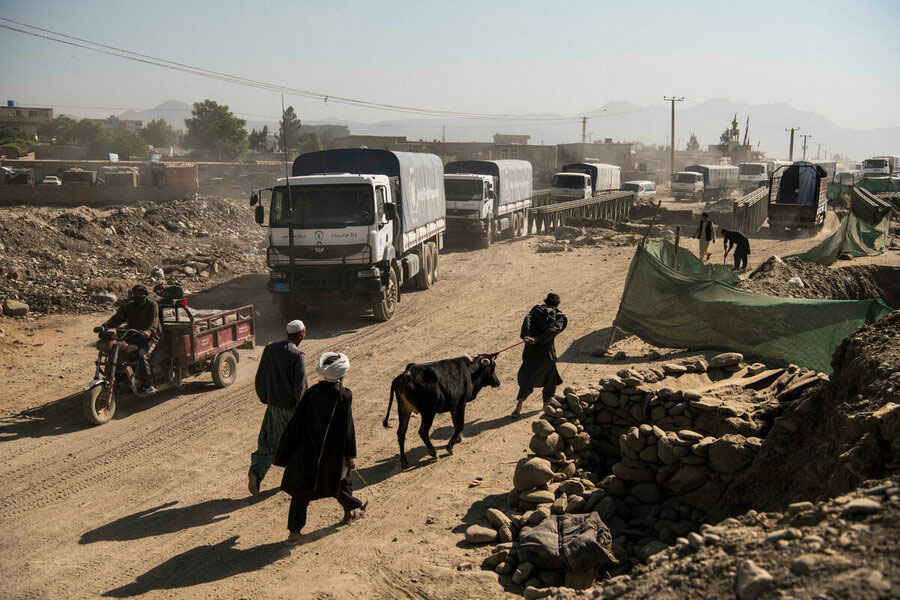 WFP Trucks leave Kabul to deliver food aid to provinces (photo courtesy of WFP)
WFP Trucks leave Kabul to deliver food aid to provinces (photo courtesy of WFP)
Aug 27, 2021
ARLINGTON, VA -- Climate change, civil conflict, natural disasters, and COVID-19 have all created new challenges in the effort to improve global food security and nutrition. The past month has seen this situation exacerbated as Haiti experienced another devastating earthquake followed by a tropical storm at a time of extreme political unrest, and as the U.S. evacuation of Afghanistan plunged many there into an increasingly difficult situation. Humanitarian assistance is going to be critical in the coming months and tonnage of rice going into various emergency food aid programs will likely increase.
The World Food Programme (WFP) is the primary agency conducting U.S. government emergency humanitarian feeding programs and responding to natural and man-made disasters around the world, including assistance to Haiti and Afghanistan. A recent communication from WFP notes that they have activated 3,500 MT of prepositioned food, including rice, to support up to 270,000 people in Haiti for a month with more likely to come. They are also distributing emergency food assistance to field hospitals near the epicenter of the earthquake.
Additionally, USA Rice members are making individual donations to help Haitians who have long been large consumers of U.S. rice. Recently, Supreme Rice donated a few containers of rice, clothing, and other supplies to those in need in Les Cayes, Arniquet, and several other cities in southern Haiti.
In Afghanistan, WFP will deliver assistance as long as possible. According to WFP, “one in three people – some 14 million – are going hungry in the country. At least two million children are malnourished.” WFP’s programs have reached 5.5 million, providing assistance to families displaced by the conflict in Kabul. They will continue to call forward numerous commodities in response to the worsening situation.
“Historically, most rice and fortified rice has gone into the U.S. Department of Agriculture’s McGovern Dole School Feeding programs,” said USA Rice Vice President International Sarah Moran. “During immediate crisis, however, the U.S. Agency for International Development is the entity charged with emergency feeding response. Rice and fortified rice called forward will likely be programmed into their emergency and development food assistance programs in the coming months.”